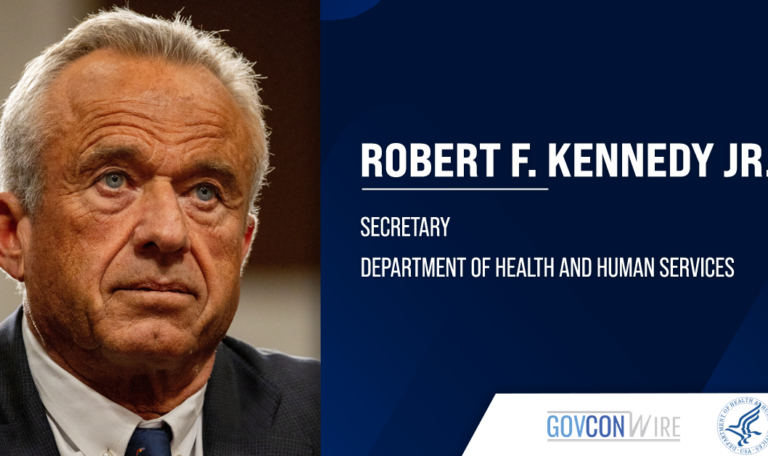Robert F. Kennedy Jr., the U.S. Health and Human Services Secretary, is spearheading a major overhaul of the Food and Drug Administration’s (FDA) “Generally Recognized as Safe” (GRAS) designation. At the heart of his mission is the elimination of a loophole that has allowed food and chemical manufacturers to introduce untested additives into the American food supply for decades. For health-conscious consumers, food policy advocates, and concerned parents, this move could represent a shift in the safety and transparency of the products on our shelves.
Here’s what you need to know about RFK Jr.’s controversial proposal and why it matters.
Understanding the FDA’s GRAS Program
The GRAS rule was established in 1958 to fast-track the inclusion of safe, familiar ingredients, such as salt and vinegar, in food products without requiring lengthy FDA reviews. However, the process evolved over time, creating a substantial regulatory loophole. Since 1997, it has been voluntary for manufacturers to notify the FDA about new additives. This means companies can declare their ingredients safe without providing any safety data to the FDA or even informing the public.
A telling statistic highlights the issue. Of all new chemicals introduced into foods and food packaging since 2000, nearly 99% were approved by the companies themselves—not the FDA, according to a 2022 analysis by the Environmental Working Group (EWG).
Critics argue that this self-regulation has opened the door for potentially harmful additives to enter the food supply, often without sufficient research into long-term health impacts.
What’s the Problem with GRAS?
Under the current GRAS system, additives with questionable safety records have managed to remain in our food long after concerns were raised. Take brominated vegetable oil (BVO), for example. Used in sodas and sports drinks, BVO was identified as harmful as early as 1970. However, it remained on the market for decades before finally being banned by the FDA in 2024. Similar concerns exist for artificial color additives like red dye No. 3, linked to cancer studies in animals, which also persisted for more than 30 years before being banned in January 2025.
A growing body of research connects ultraprocessed foods, which often rely on such additives, to severe health issues, including heart disease, obesity, and certain cancers. With more than 50% of the average American’s daily caloric intake coming from ultraprocessed foods, the implications for public health are vast.
By reforming GRAS, RFK Jr. aims to remove the veil of secrecy surrounding such substances. “You should be able to exercise informed choice. You should know what that product is, what’s in your food, and what the health impacts are,” Kennedy emphasized.
What RFK Jr.’s Proposal Could Mean for Consumers
Kennedy’s plan to eliminate the GRAS program includes key reforms to enhance consumer protection and safety in the US food supply. The overarching goal is transparency. Manufacturers would be required to notify the FDA about their intended use of new ingredients and provide underlying safety data before introducing them into the market.
For consumers, this could mean better access to information about what’s in their food and greater assurance that these ingredients have been rigorously vetted for safety.
The proposed changes also address a systemic issue in American food policy. Multiple states, including California, have already banned harmful additives like potassium bromate and propylparaben, leading the way in food safety regulations. A federal-level overhaul would create nationwide safety standards.
However, eliminating GRAS won’t be without its challenges. There are already numerous “secret GRAS” additives in circulation, and phasing these substances out will require a slow and systematic approach to avoid disrupting the food supply.
Industry Pushback and Challenges
Despite growing calls for reform, Kennedy’s efforts face significant roadblocks. The powerful food industry lobby has long resisted changes to GRAS regulations, arguing that the program fosters innovation and meets consumer demand efficiently.
Melissa Hockstad, CEO of the Consumer Brands Association, described a recent meeting with Kennedy and top executives of major food companies like Kraft Heinz, General Mills, and PepsiCo as “constructive.” However, implementing stricter oversight could result in increased costs for manufacturers. Inevitably, this could lead to higher prices for consumers at the grocery store.
Another hurdle is simply a lack of resources. As Marion Nestle, a leading nutrition and food studies expert, noted, the FDA would need a significant budget increase to hire experts in food toxicology and conduct in-depth additive assessments. Without these resources, attempting to close the GRAS loophole may do little to address the root issues.
Large-scale epidemiology to study the long-term health effects of food additives is also expensive and time-consuming, making reform even more difficult to implement.
Why This Matters
The stakes for reforming GRAS could not be higher. Transparency and accountability in the U.S. food supply have been under siege for far too long. Consumers are often left in the dark about the potential dangers of food additives, while regulatory agencies struggle to catch up with a growing industry.
For the average person, the consequences are deeply personal. Improved oversight could mean fewer health risks for your family, a better understanding of what we consume, and a stronger culture of informed decision-making about food. For parents especially, knowing that the snacks their kids love are free from harmful chemicals is a powerful motivator for change.
Kennedy’s initiative has sparked a critical conversation about the future of food safety in America. Will his vision translate into meaningful reform, or will industry resistance continue to stymie progress?
What Can You Do?
While policy reform takes time, consumers can take steps today to prioritize health and safety for themselves and their families:
- Educate Yourself: Understand the food additives commonly found in ultraprocessed products and opt for simpler, natural alternatives whenever possible.
- Support Transparency Initiatives: Advocate for food labeling that clearly outlines ingredients and potential health risks.
- Buy Local: Seek out fresh, minimally processed food from trusted sources like local farmers’ markets.
By choosing products wisely and supporting reform initiatives like Kennedy’s, we can collectively push for a future where food safety is no longer a question mark.
Final Thoughts
RFK Jr.’s effort to eliminate the FDA’s controversial GRAS program marks a pivotal moment in food policy reform. For decades, untested and potentially harmful additives have infiltrated the American diet under the veil of self-regulation. Closing the GRAS loophole is an essential step toward transparency, safety, and accountable practices in the food industry.
For health-conscious consumers and concerned parents, Kennedy’s fight is one to watch closely. Change starts with awareness, and understanding the shortcomings of GRAS is the first step in ensuring a healthier food system for all.








